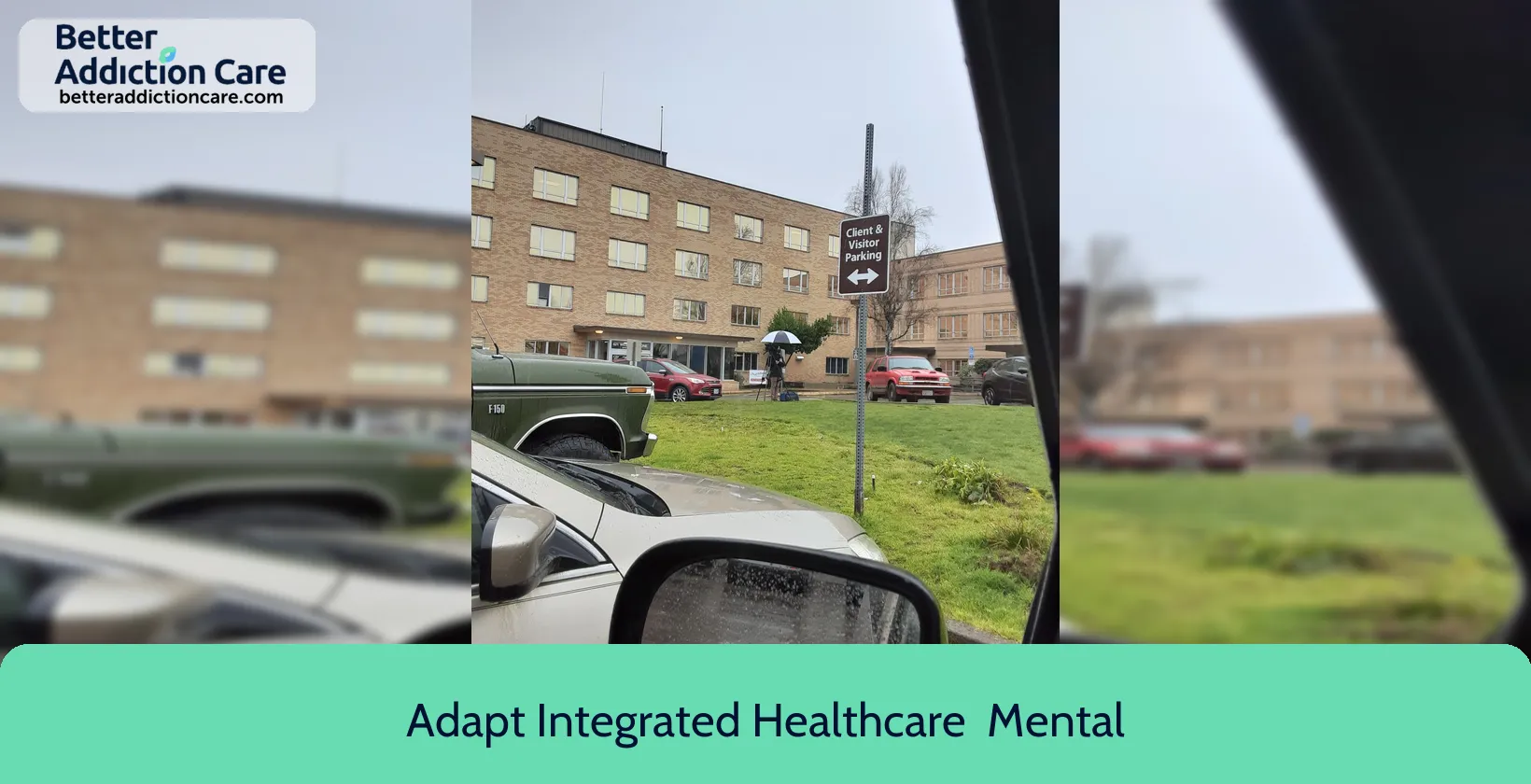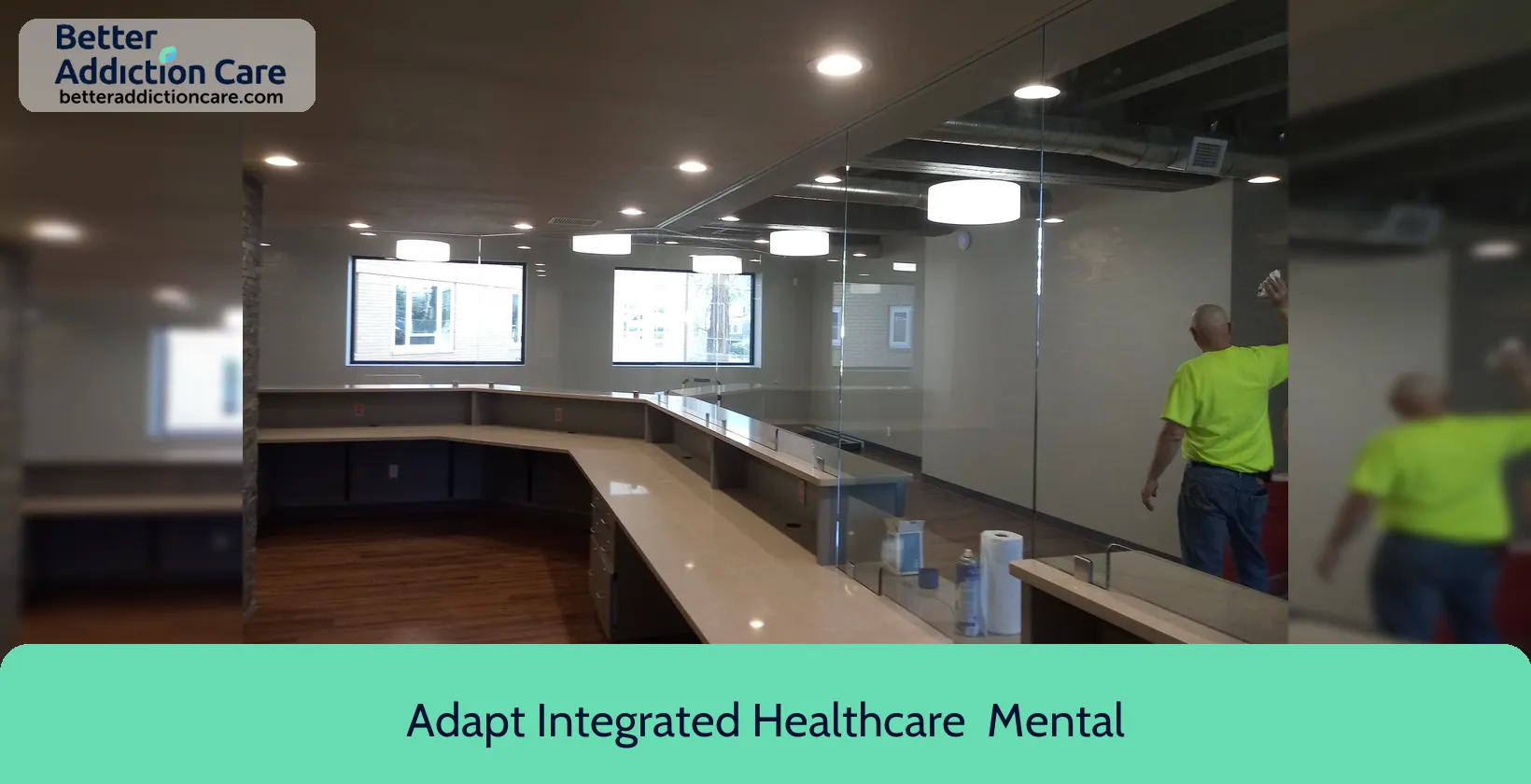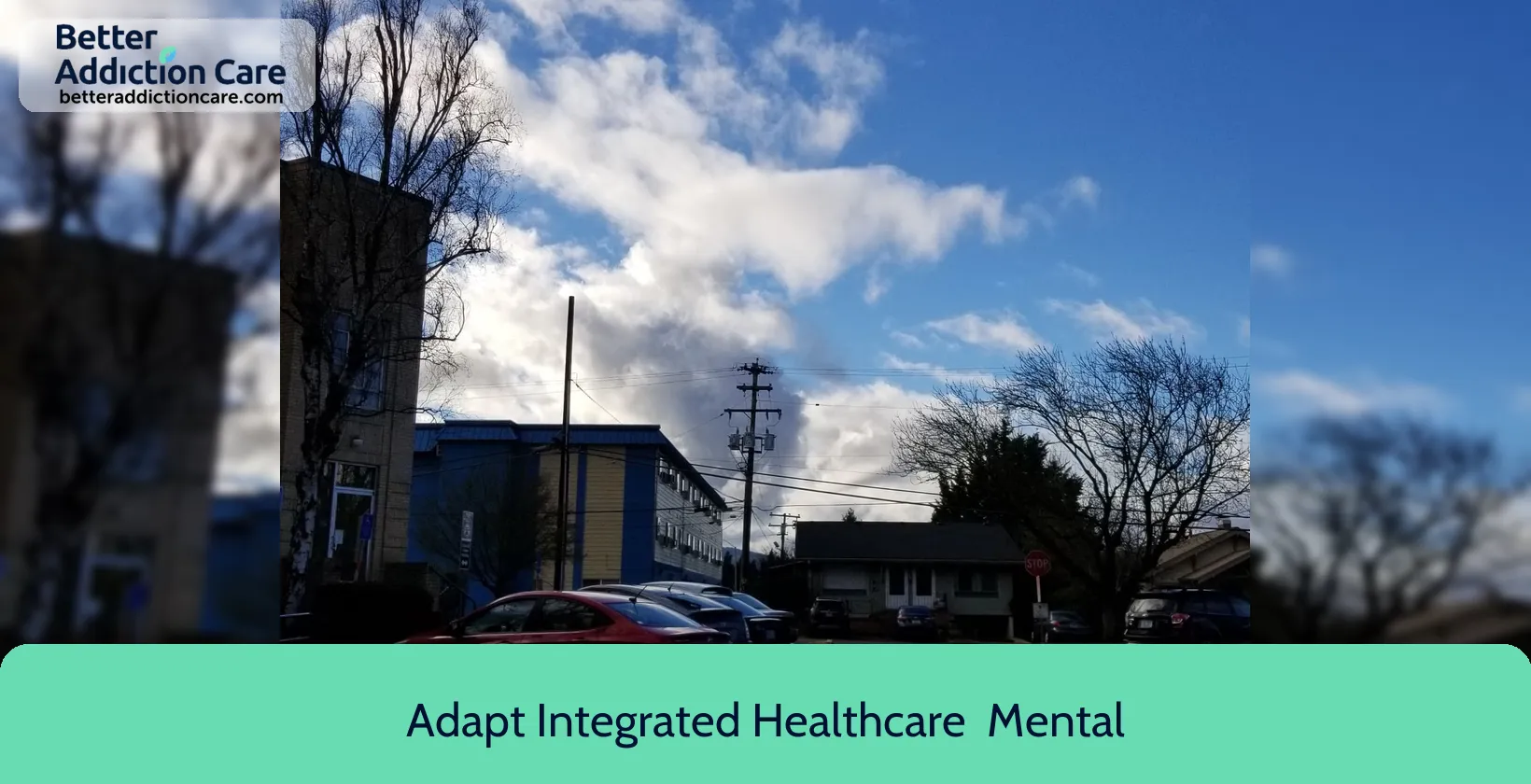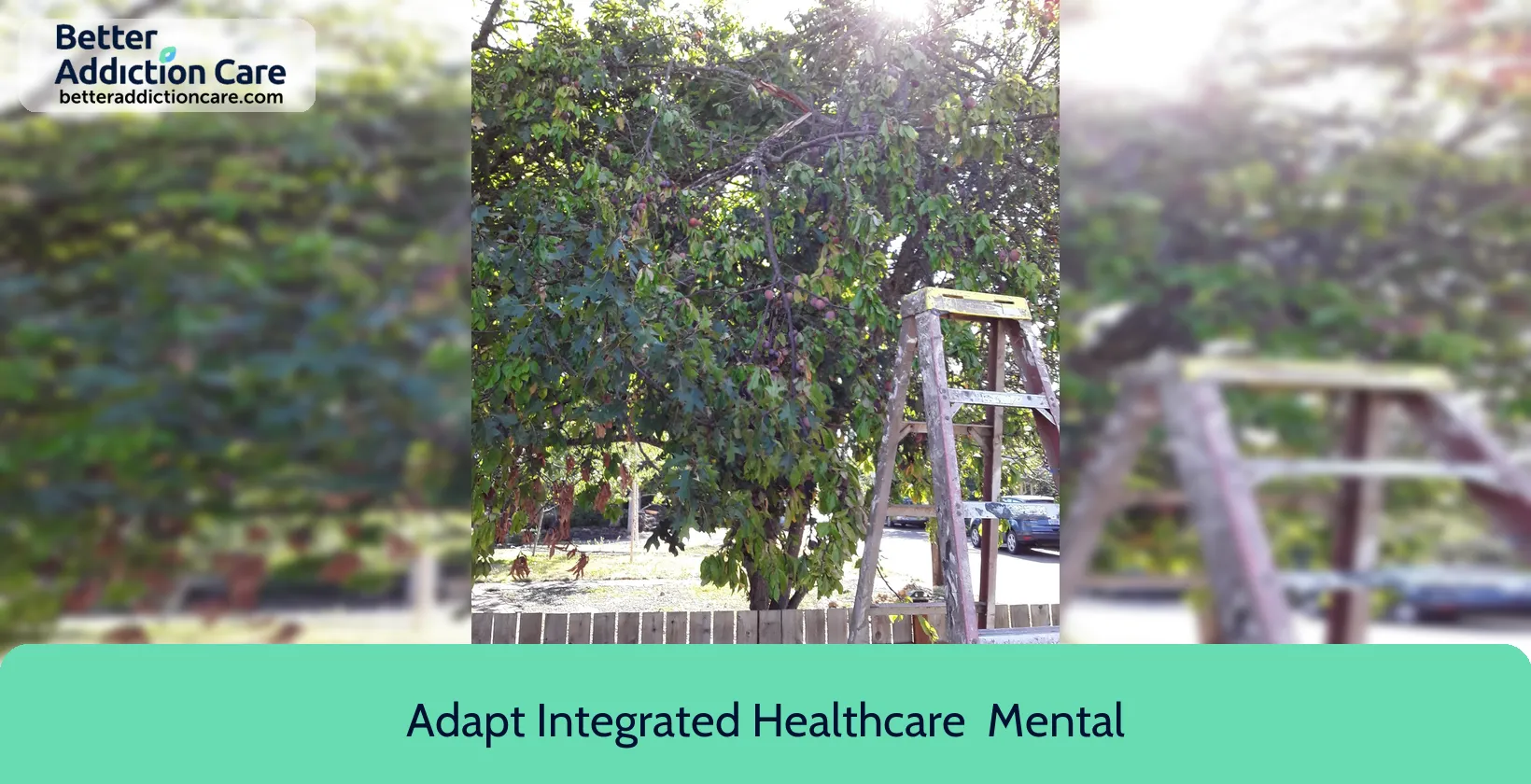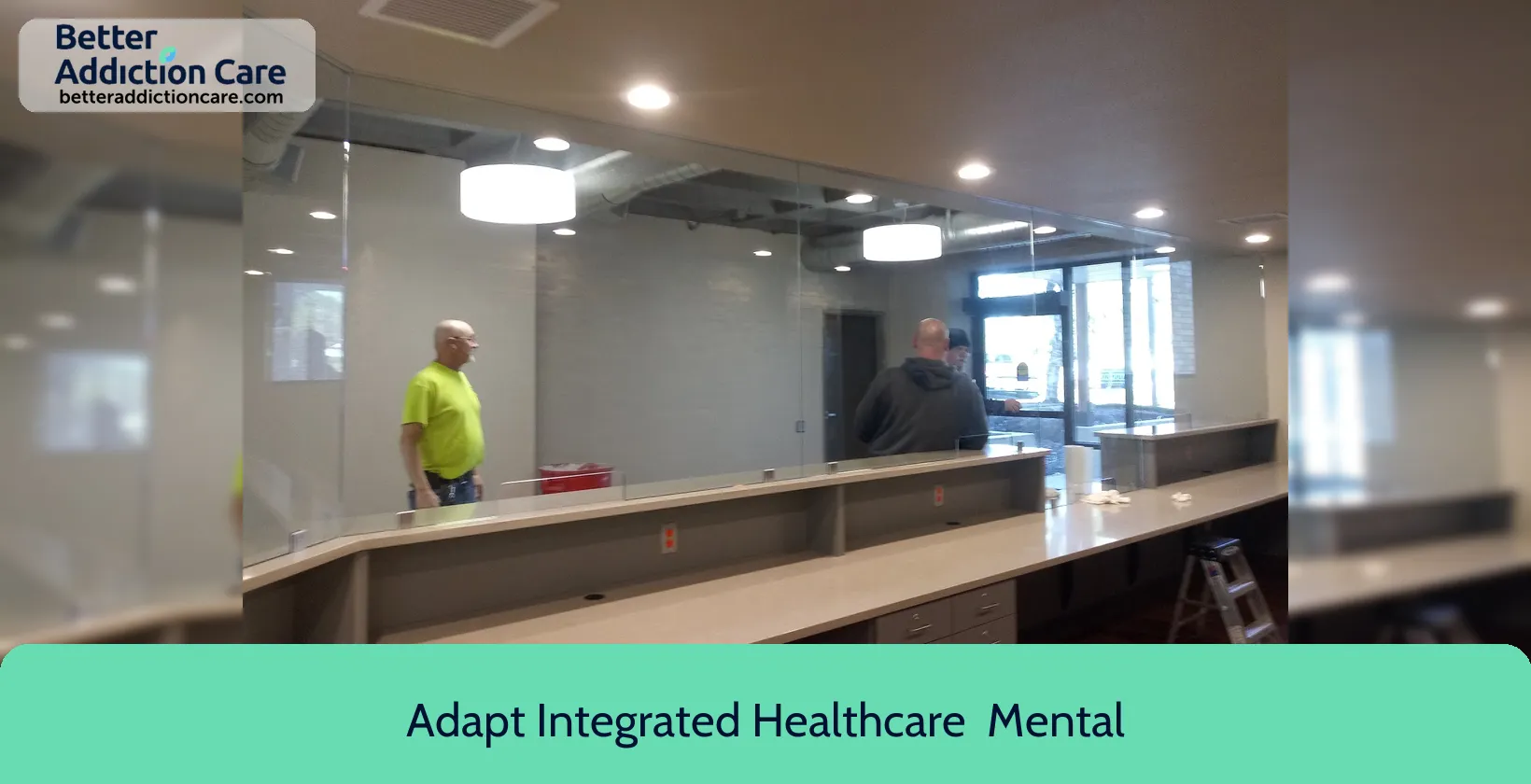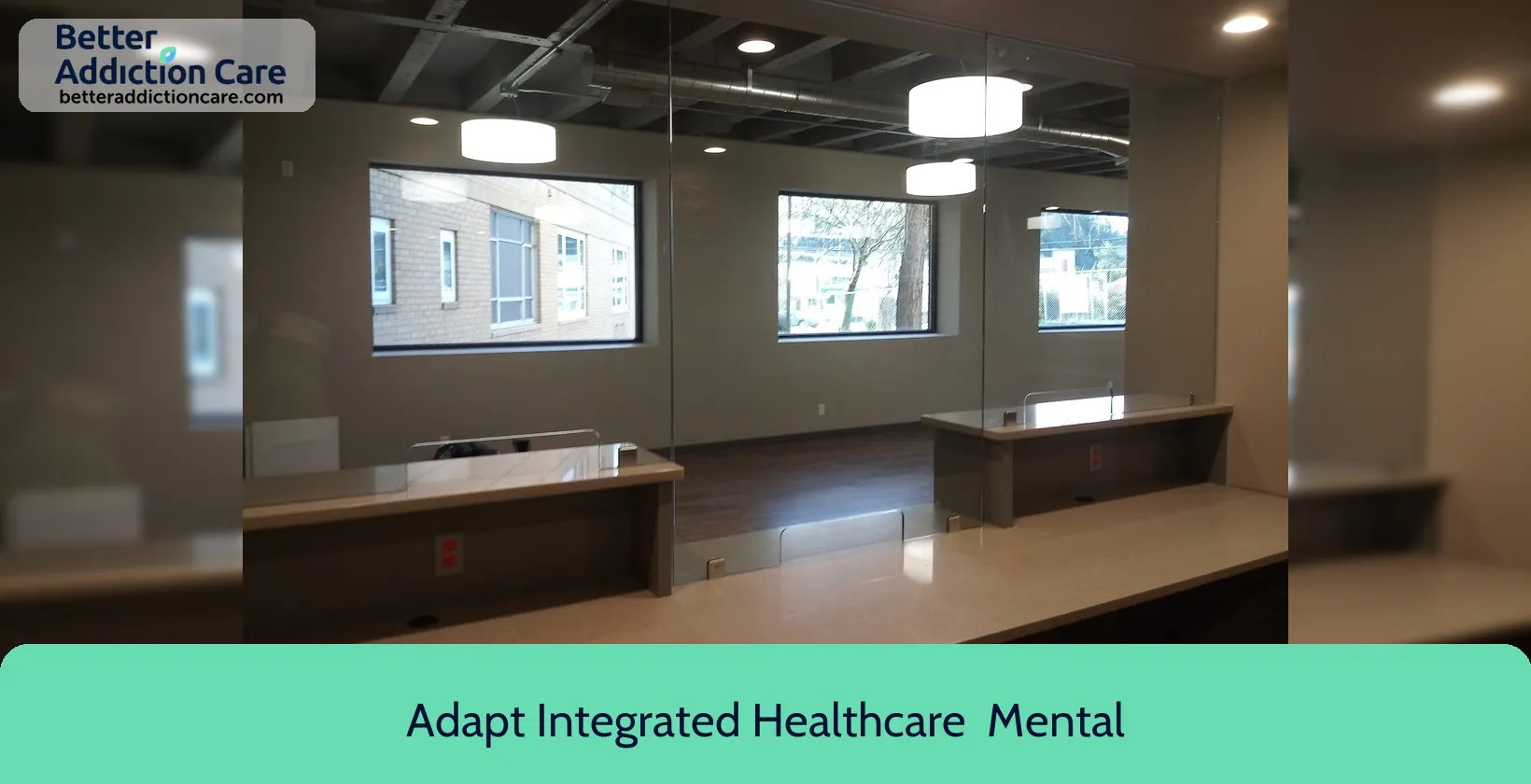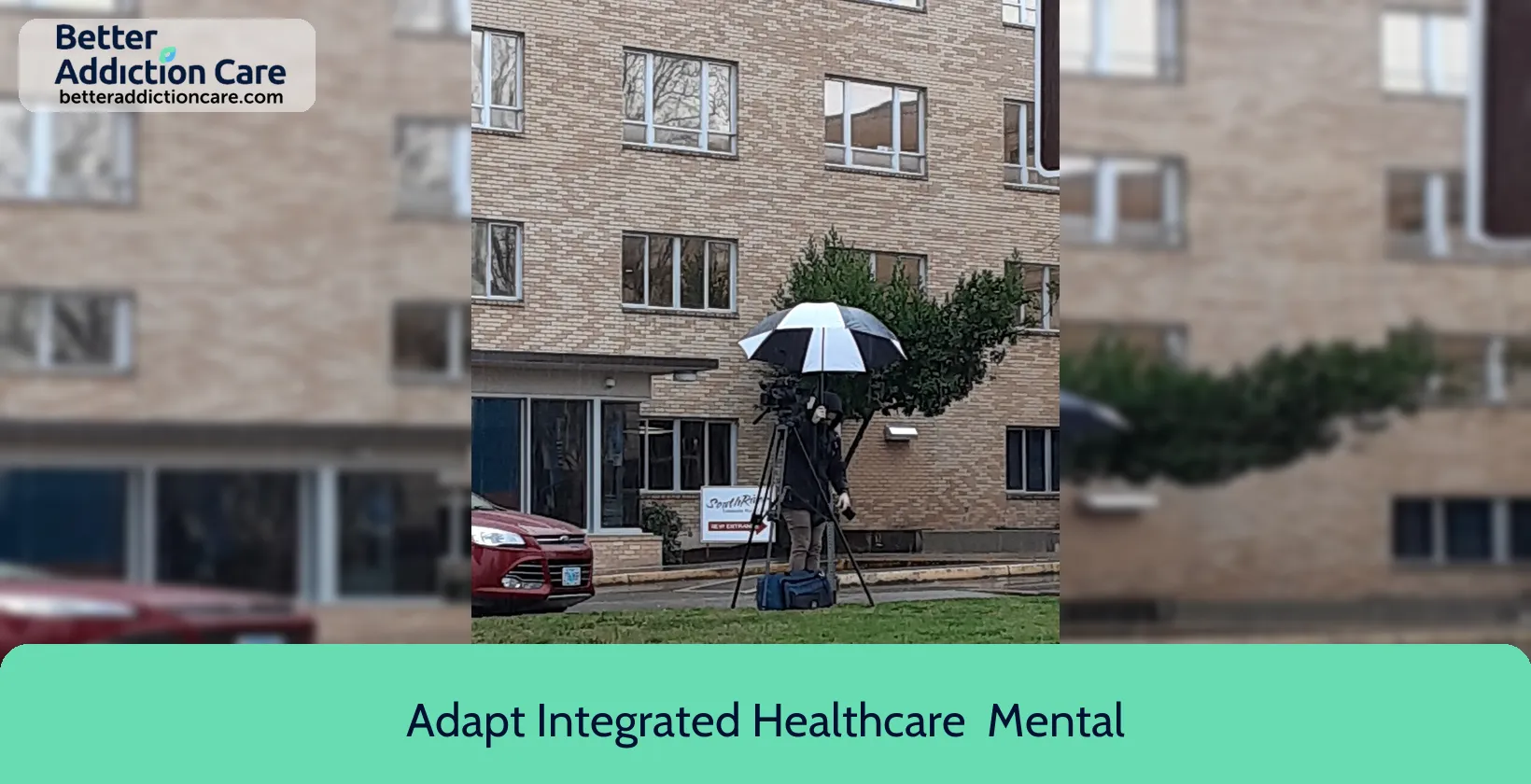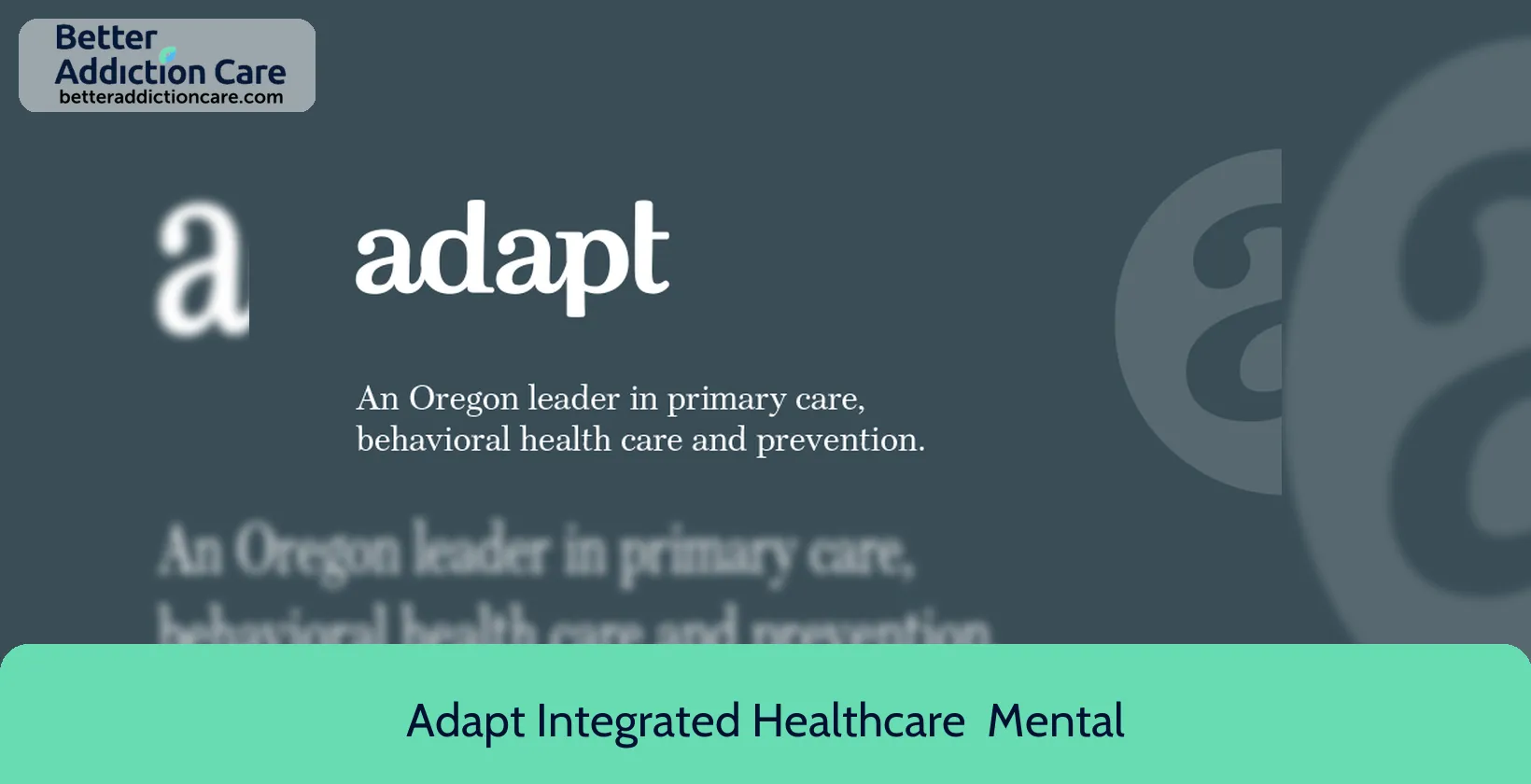Adapt Integrated Healthcare - Mental Healthcare
Overview
Adapt Integrated Healthcare - Mental Healthcare is a mental health treatment center for people seeking treatment near Douglas County. As part of their treatment modalities for recovery, Adapt Integrated Healthcare - Mental Healthcare provides couples/family therapy, group counseling, and cognitive behavioral therapy during treatment. Adapt Integrated Healthcare - Mental Healthcare is located in Roseburg, Oregon, accepting cash or self-payment for treatment.
Adapt Integrated Healthcare - Mental Healthcare at a Glance
Payment Options
- Cash or self-payment
- Medicaid
- Medicare
- State-financed health insurance plan other than Medicaid
- Private health insurance
Assessments
- Screening for tobacco use
- Comprehensive mental health assessment
- Comprehensive substance use assessment
Age Groups
- Young adults
- Children/adolescents
- Adults
- Seniors
Ancillary Services
- Assertive community treatment
- Intensive case management
- Case management service
- Court-ordered outpatient treatment
- Family psychoeducation
Highlights About Adapt Integrated Healthcare - Mental Healthcare
6.68/10
With an overall rating of 6.68/10, this facility has following balanced range of services. Alcohol Rehabilitation: 8.00/10, Drug Rehab and Detox: 6.00/10, Insurance and Payments: 6.00/10, Treatment Options: 6.73/10.-
Alcohol Rehabilitation 8.00
-
Treatment Options 6.73
-
Drug Rehab and Detox 6.00
-
Insurance and Payments 6.00
Treatment At Adapt Integrated Healthcare - Mental Healthcare
Treatment Conditions
- Mental health treatment
- Substance use treatment
- Co-occurring Disorders
Care Levels
- Outpatient
Treatment Modalities
- Couples/family therapy
- Group counseling
- Cognitive behavioral therapy
- Dialectical behavior therapy
- Activity therapy
Ancillary Services
Languages
- Sign language services for the deaf and hard of hearing
Special Programs
- Clients with co-occurring mental and substance use disorders
- Members of military families
- Criminal justice (other than DUI/DWI)/Forensic clients
- Clients who have experienced trauma
- Children/adolescents with serious emotional disturbance (SED)
Get Help Now
Common Questions About Adapt Integrated Healthcare - Mental Healthcare
Contact Information
Other Facilities in Roseburg

7.56

6.97

7.64
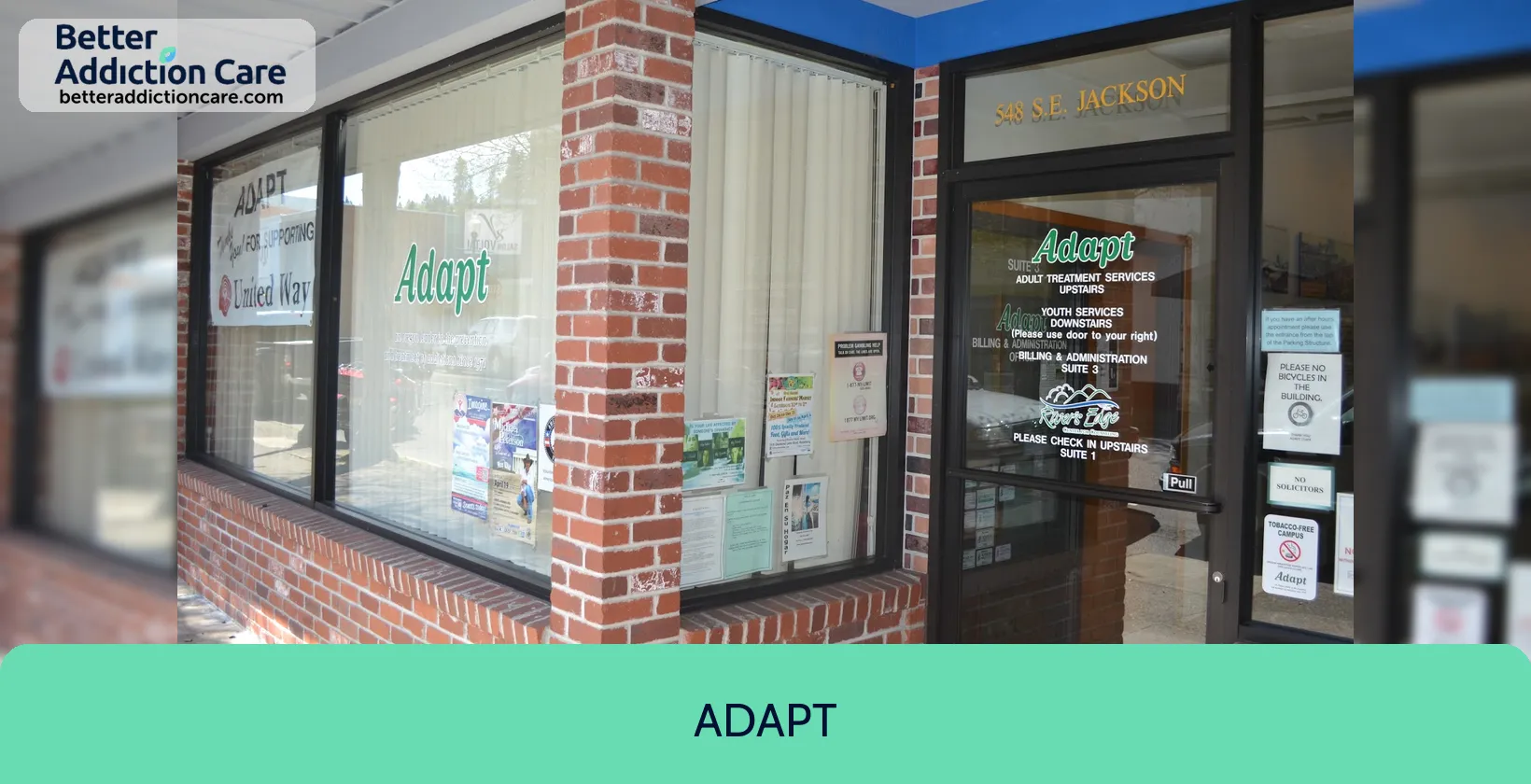
7.80
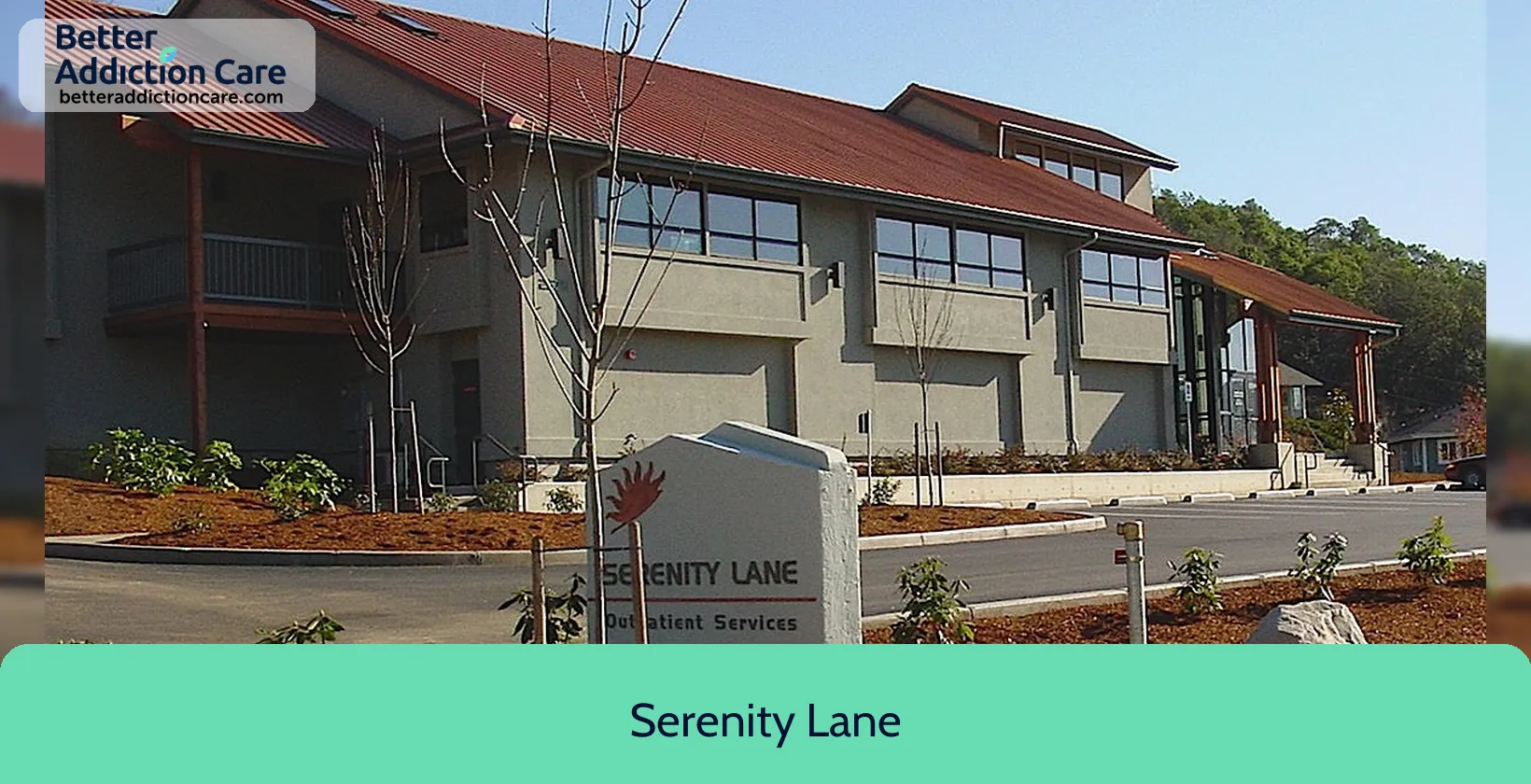
7.16
DISCLAIMER: The facility name, logo and brand are the property and registered trademarks of Serenity Lane, and are being used for identification and informational purposes only. Use of these names, logos and brands shall not imply endorsement. BetterAddictionCare.com is not affiliated with or sponsored by Serenity Lane.
